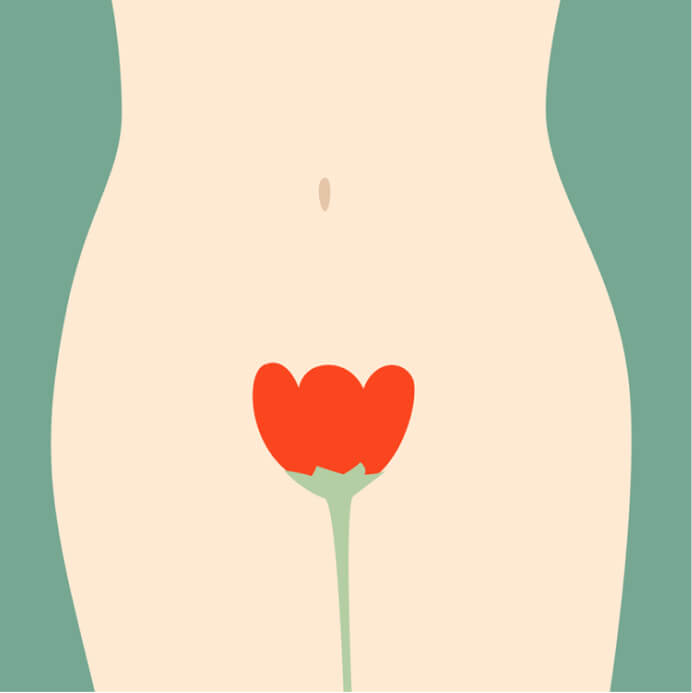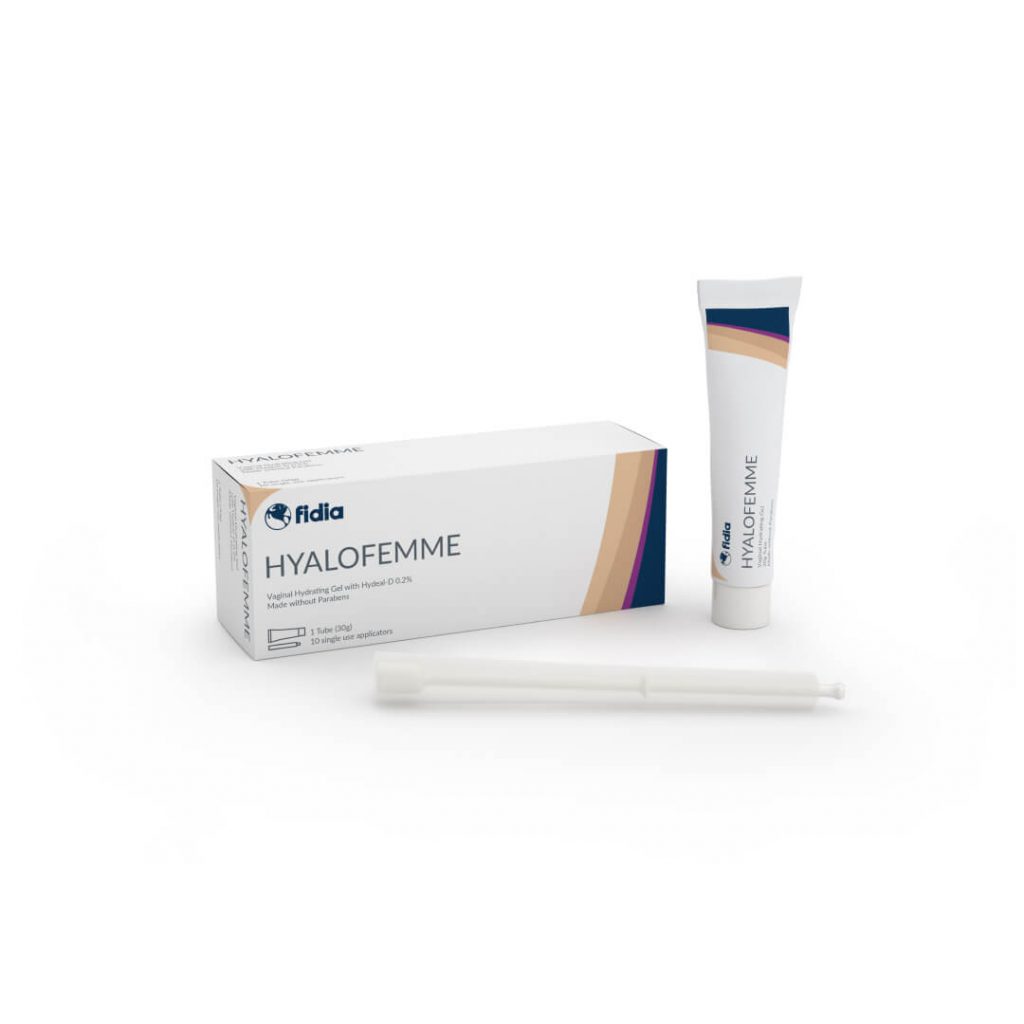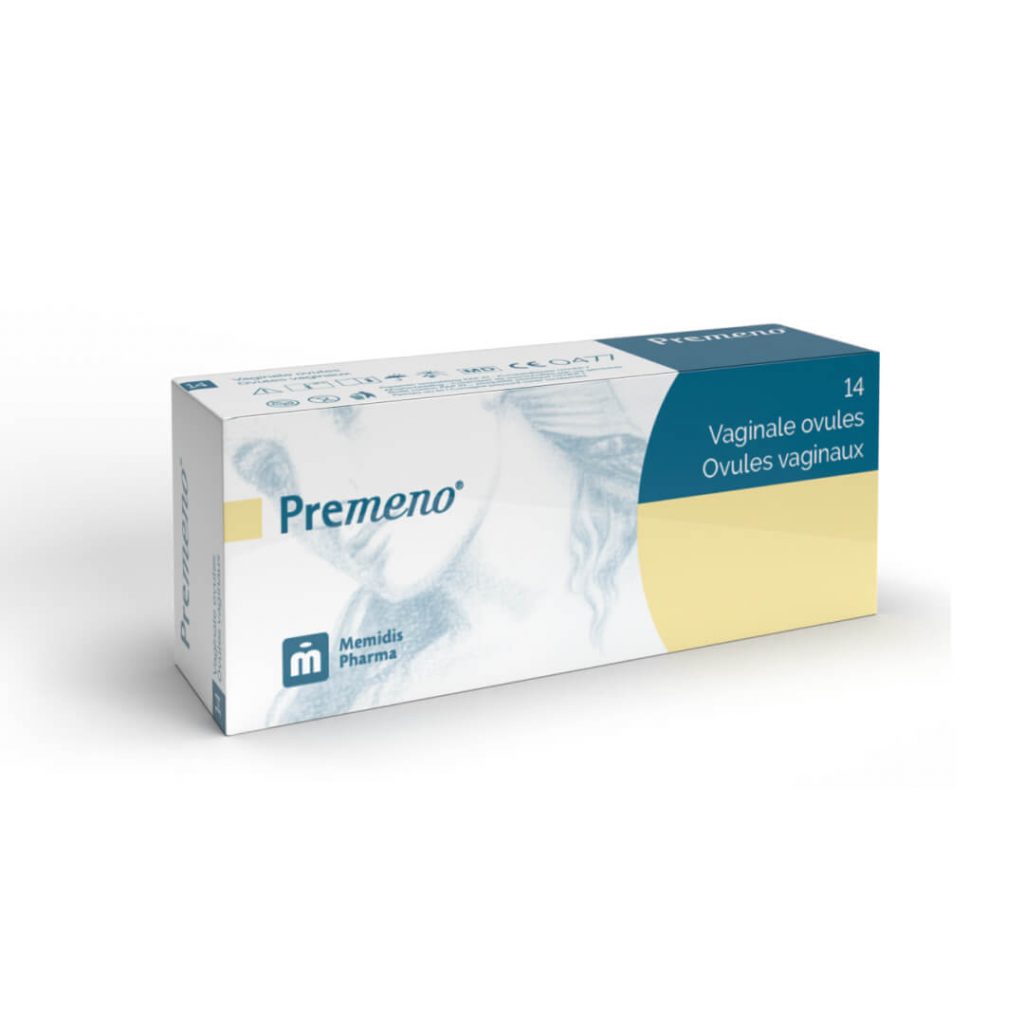Many women with cancer will therefore undergo radiation therapy, receive chemotherapy, or follow long-term anti-estrogen therapy in addition to surgical intervention as part of their treatment.
Estrogen normally ensures that hyaluronic acid creates a good moisture balance in the vagina. Counteracting this through anti-estrogen therapy will therefore often lead to symptoms of vaginal dryness.
Chemotherapy and radiation in the gynecological area also lead to symptoms of vaginal dryness.
These symptoms can also occur due to ‘premature menopause’, for example after removal of the ovaries during the fertile phase.
Hyaluronic acid is the main structural element in vaginal tissue and has a high water-binding and lubricating capacity. The decrease in hyaluronic acid causes the vaginal tissue to become thinner and drier, which can result in an uncomfortable, painful feeling and even urinary tract infections.
Premeno Hyalofemme restore the hyaluronic acid taken by nature to the vaginal tissue, thus rebalancing the vagina’s moisture.
In a German study conducted among 1000 women aged 25 to 65 years, 42% of women had experienced vaginal complaints in the past 12 months. More than a third of the surveyed women were in the (post)menopausal age group. Vaginal itching, dryness, and pain during intercourse were mentioned most often. During the complaints, 36% of women report having a strongly reduced libido.
Radiation
Radiation can damage the vaginal mucosa and tissue, and an inflammatory reaction can also occur. Due to the formation of scar tissue as a result of radiation, the deeper mucosa of the vagina becomes drier and stiffer. During arousal, this causes the mucosa to be less moistened.
After radiation, the feeling in the clitoris remains intact.
Radiation and surgery can cause scar tissue, making the vagina narrower and shorter. Dilator training can help keep the vagina accessible and flexible.
Bladder Cancer
Removal of the bladder in women can change the position of the vagina. This can cause pain during intercourse. This can be remedied by trying different positions.
After removing the bladder, there is almost always a dry vagina. This is due to damage to the nerves that cause the vagina to become moist.
In some cases, not only the bladder is removed but also the uterus and ovaries. This causes premature menopause if you haven’t gone through menopause yet. This causes symptoms such as: hot flashes, vaginal dryness, infertility, and decreased desire for intercourse.
It may be that part of the vagina is removed. This can cause scar tissue in the vagina, which can change the shape of the vagina. This can cause pain during sexual intercourse.
Sometimes it is necessary to remove a large part of the vagina during the operation, making penetration no longer possible.
Breast Cancer
Breast cancer often has a huge impact on sexuality and intimacy. Not only the fear and uncertainty about the disease itself but also the heavy treatments that have a direct effect on hormone balance.
As a result of breast cancer, women may experience, among other things:
- Hardening of the skin due to radiation, the skin may feel painful when touched.
- Permanent decreased sensation in the breast and/or nipple due to treatments.
- Vaginal dryness, chemotherapy and hormone therapy can cause very severe vaginal dryness, making penetration painful.
- Vaginal bleeding, hormone therapy makes the vaginal mucosa thinner and more vulnerable, which can lead to vaginal bleeding during penetration.
- No more desire for sex, this is caused by the emotional consequences, side effects of treatments, causing you to have less desire for sex.
- Vaginal infections, due to chemotherapy you have a greater chance of vaginal yeast infections. You then experience more discharge and itching.
- Immunotherapy can cause pain during sexual intercourse.
Other types of cancer that can lead to vaginal dryness are:
- Colorectal Cancer
- Ovarian Cancer
- Vulvar Cancer
- Uterine (Cervical) Cancer
- Labial Cancer



